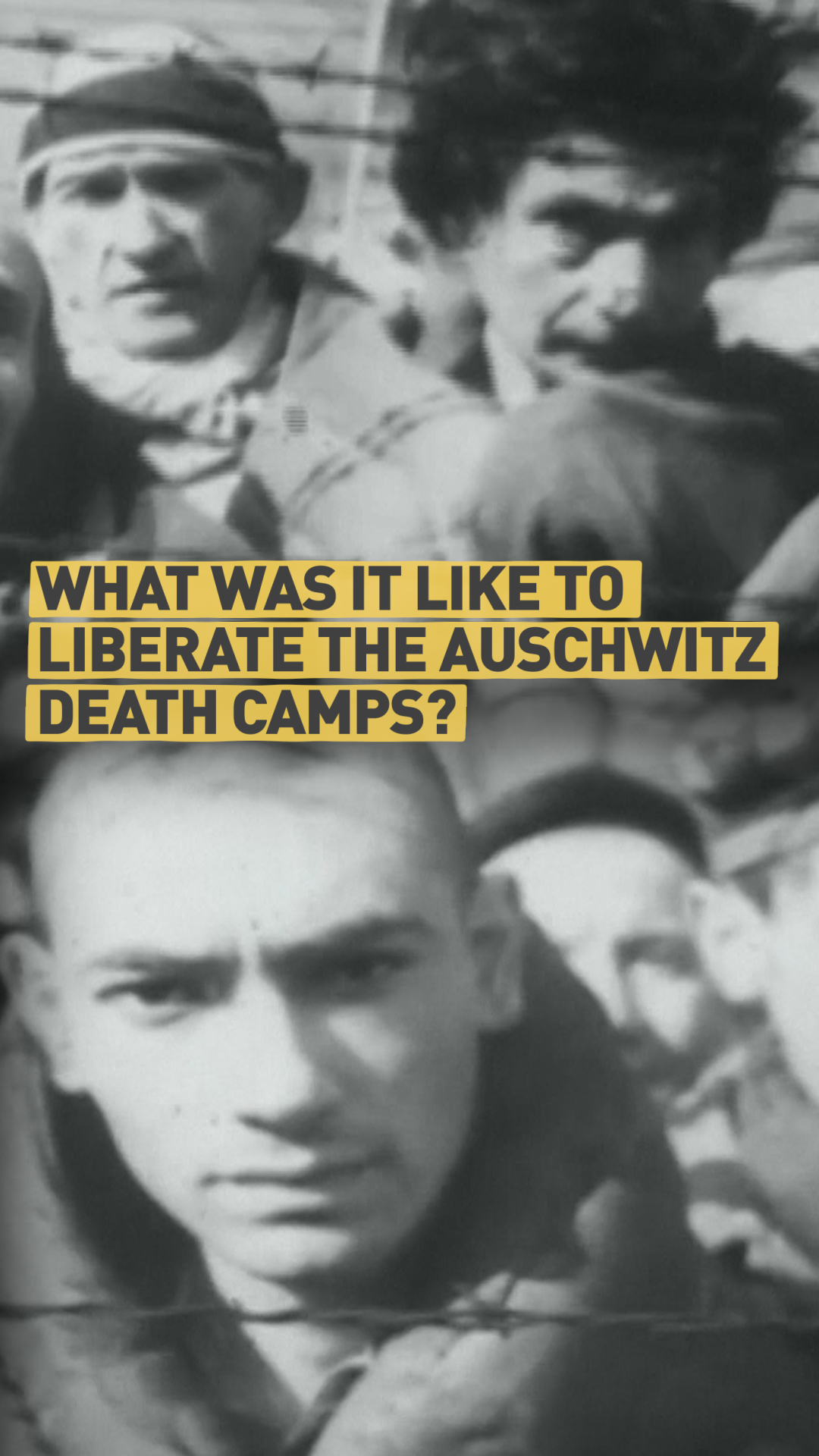01:44

Monday marks 75 years since the liberation of the Auschwitz concentration camp by Soviet Union soldiers. Over 200 survivors and world leaders gathered at the site of the former Nazi death camp, to commemorate the anniversary.
For one man who helped liberate the camp, the memory of the freed prisoners' faces still haunts him to this day. 96-year-old David Dushman is one of the last surviving Russian soldiers whose tanks broke through the barbed-wire fences of the camp in January 1945.
"When we arrived we saw the fence and these unfortunate people, we broke through the fence with our tanks. We gave food to the prisoners and continued," Dushman recalls to Reuters.
One memory that stands out for Dushman from the day that would be remembered for generations to come, was the look on the faces of the prisoners.
"They (the prisoners) were standing there, all of them in (prisoner) uniforms, only eyes, only eyes, very narrow - that was very terrible, very terrible. And I hope, that this will never (happen) again in life."

Children were among prisoners at Auschwitz (Credit: AP)
Children were among prisoners at Auschwitz (Credit: AP)

Women prisoners were given hard labor assignments at the camp during World War 2. (Credit: AP)
Women prisoners were given hard labor assignments at the camp during World War 2. (Credit: AP)

The front gate of the concentration camp reads: 'Arbeit macht frei' (Work sets you free). (Credit: AP)
The front gate of the concentration camp reads: 'Arbeit macht frei' (Work sets you free). (Credit: AP)

Prisoners were put in gas chambers and poisoned using Zyklon-b poured in through the roof. (Credit: Markus Schreiber/AP)
Prisoners were put in gas chambers and poisoned using Zyklon-b poured in through the roof. (Credit: Markus Schreiber/AP)

Prisoners were mistreated and malnourished, many who weren't gassed died of disease or starvation. (Credit: AP)
Prisoners were mistreated and malnourished, many who weren't gassed died of disease or starvation. (Credit: AP)

Hundreds of prisoners were crammed in small rooms in the main barracks. (Credit: Markus Schreiber/AP)
Hundreds of prisoners were crammed in small rooms in the main barracks. (Credit: Markus Schreiber/AP)

The bodies of those poisoned in the gas chambers were incinerated in mass crematoriums. (Credit: AP)
The bodies of those poisoned in the gas chambers were incinerated in mass crematoriums. (Credit: AP)

The Auschwitz camp was built by Nazi Germany in occupied Poland during World War 2. (Credit: AP)
The Auschwitz camp was built by Nazi Germany in occupied Poland during World War 2. (Credit: AP)

1.3 million people were held in Auschwitz and more than one million were killed, mostly Jews. (Credit: AP)
1.3 million people were held in Auschwitz and more than one million were killed, mostly Jews. (Credit: AP)

The Auschwitz camp was the largest of the extremination camps used during the Holocaust. (Credit: Pablo Gonzalez/AFP)
The Auschwitz camp was the largest of the extremination camps used during the Holocaust. (Credit: Pablo Gonzalez/AFP)
More than one million, mostly Jewish men, women and children, lost their lives in Auschwitz, which was built by Nazi Germany in occupied Poland during World War Two as a custom extermination camp.
It was the largest of the Nazi concentration camps, holding at least 1.3 million people. The camp included several gas chambers where Zyklon-b poison was used to kill inmates crammed into small rooms.
"We didn't know that Auschwitz existed. In Russian it's called 'Osventsim' We didn't know (about it)," said Dushman, who only understood the truth about what he had seen much later.
But Dushman was experiencing his own hardships because of his Jewish faith and his father's ties to the Soviet "Red army."
"I frequently wasn't allowed abroad because I had two stigmas. Firstly, I was Jewish, secondly, I was a son of an enemy of the people. My father, who was one of the first recipients of the Order of the Red Banner during the war, during the Revolution, he was repressed and in 1938 and sent to a (labor) camp," said Dushman.
Dushman was badly injured during the war and had to have part of one of his lungs removed. He was one of only 69 men in his 12,000-strong column of tanks to survive.
No stranger to hardship, Dushman didn't allow his injury to hold him back, going on to become a professional fencer. He had joined the Olympic fencing team in Munich where he has been living since 1996.

David Dushman was part of the Olympic fencing team in Munich.
David Dushman was part of the Olympic fencing team in Munich.
Source(s): Reuters